- The Buddha
(as paraphrased by Andrew Henry, Religion for Breakfast)
The brokenness that is at the root of our current divisions and polarization is not new, but a sadly ever-reoccurring cycle in human history. However, each of these cycles is also accompanied by great strides in philosophical and spiritual thinking. Crises can bring great opportunities to reorient our understanding of our life together. Religion and art have always responded in profound ways to human brokenness!
A genuine confession of personal fault and the sincere desire for reconciliation are the key ingredients of any social healing. The rites and rituals of all the world’s great religious traditions not only provide the opportunity to acknowledge personal fault, but they also offer accompanying rites and rituals of healing and reconciliation to bring what was broken back together. Religion can give us a design for a journey toward wholeness.
It is not the intention of this installation for viewers to choose a side, but rather to recognize that we find ourselves on either side of this installation at any given time. In all religions … the rites and rituals associated with confession, forgiveness, and reconciliation are by necessity repeatable! We are all broken … and need to be made whole … repeatedly.
This is the third time we have used Shelley Koopmann’s piece depicting Donald Trump alone at Leonardo DaVinci’s Last Supper it in a curated show. Over the years the painting has shifted from a real-time political cartoon to a commentary on how politicians weaponize faith. In this installation, the painting serves as a symbol and metaphor of an entrenched polarization in our collective consciousness and current social zeitgeist.
| Koopmann’s painting is juxtaposed against the offer of reconciliation around a joy-filled table in which all humanity is invited to be healed and made whole. Lynne Goodwin’s graphite portraits, along with Sandra Stephens’ pottery, illuminate an ancient pathway to healing and wholeness open to all humanity. A common table in which the cup of healing is offered to all. In coming together around a shared table, an appreciation for our common humanity can be rekindled. In our jaded world, we might call this a Pollyanna vision, but the world’s great religions believe this to be an achievable human accomplishment. In fact, this eschatological vision is the summit of all spiritual pursuits. While the iconography of this installation is specifically Judeo-Christian, the sentiment is universal in all religious and philosophical traditions. Between the two choices of aloneness and common table is the “Prayer of Humble Access” … a version of which most Christians say before coming to communion. In this ancient prayer, the spiritual seeker acknowledges that this goal for all humanity cannot and will not be achieved alone or unaided. Patrick Ellis and Mitchell Bond |
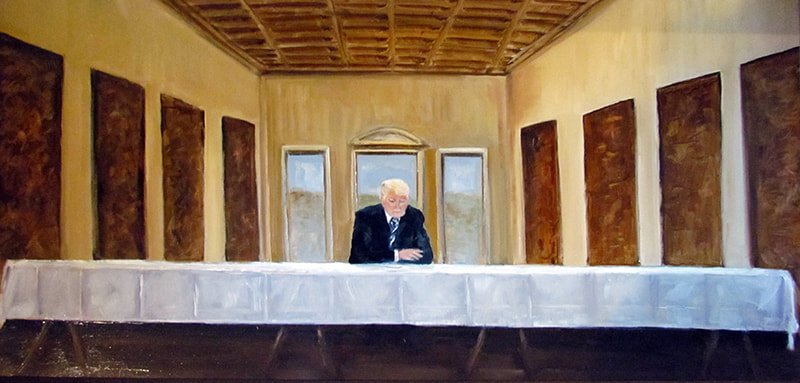
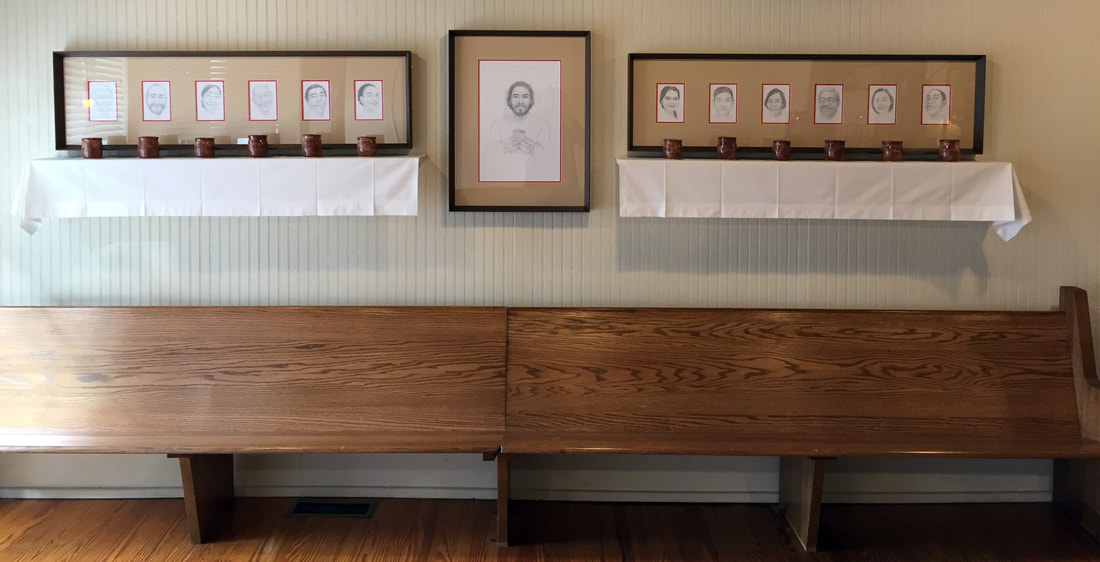

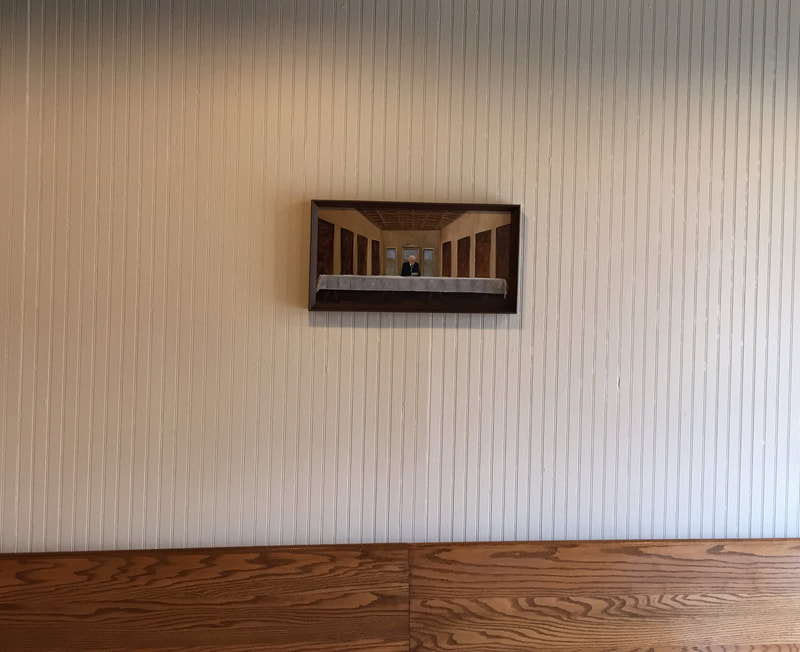
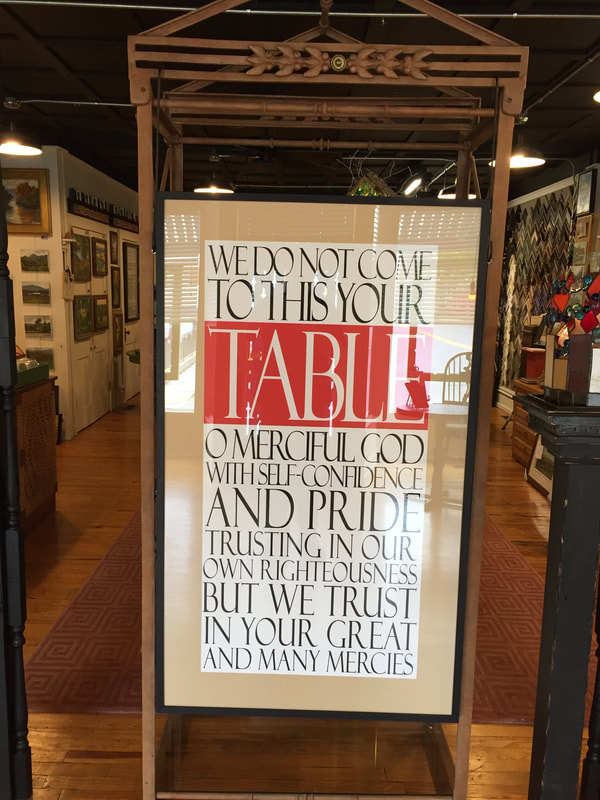
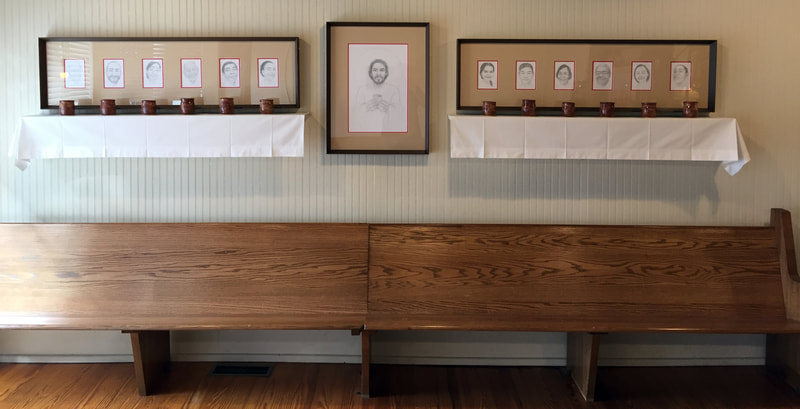
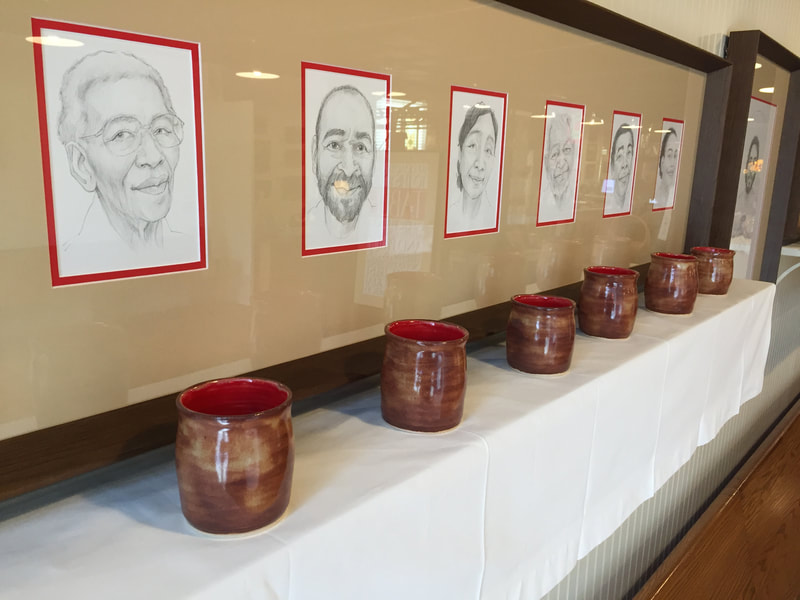
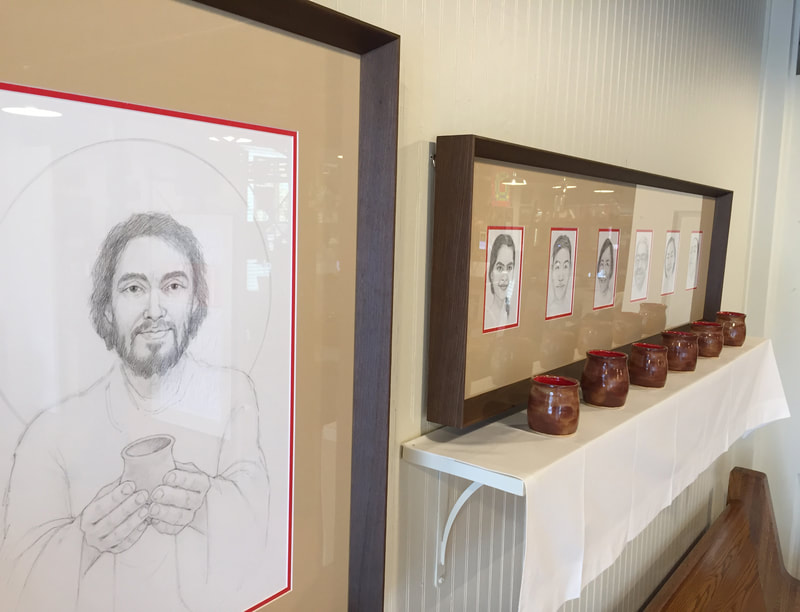
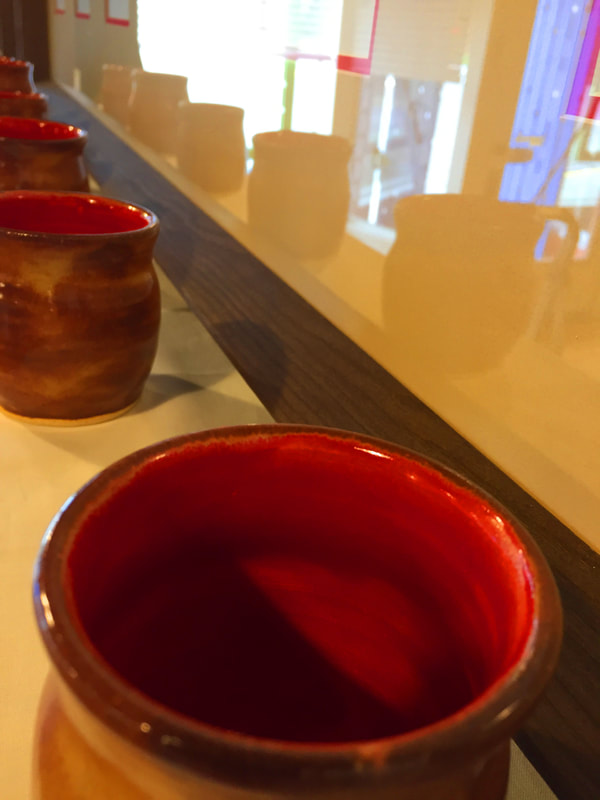
 RSS Feed
RSS Feed